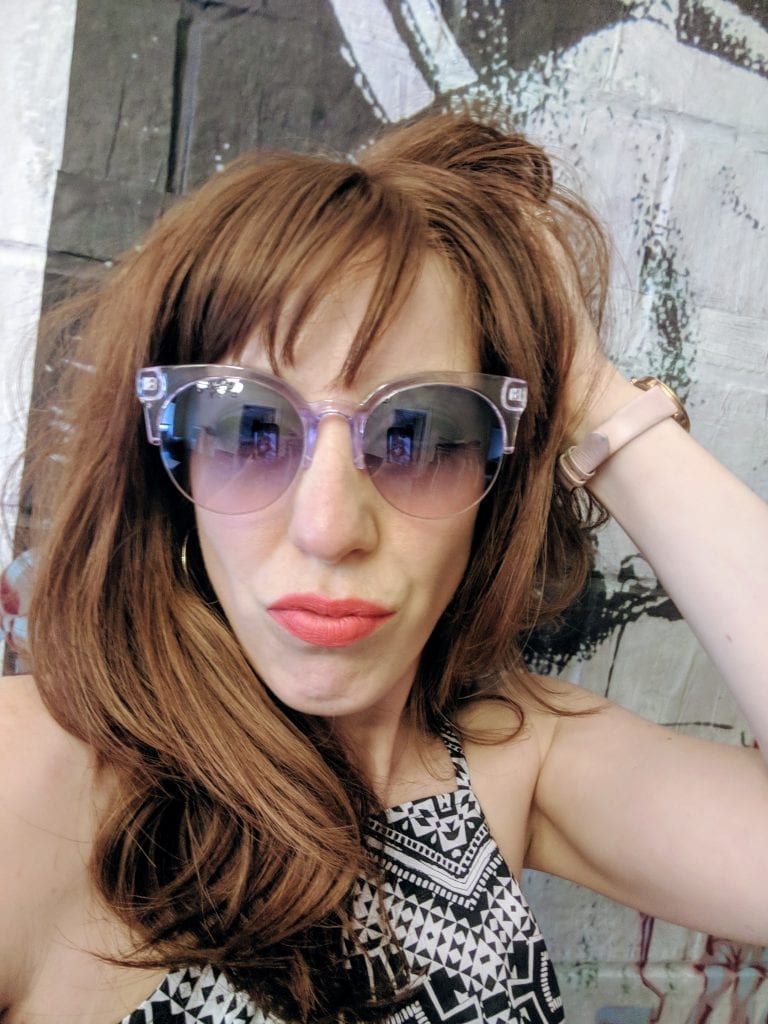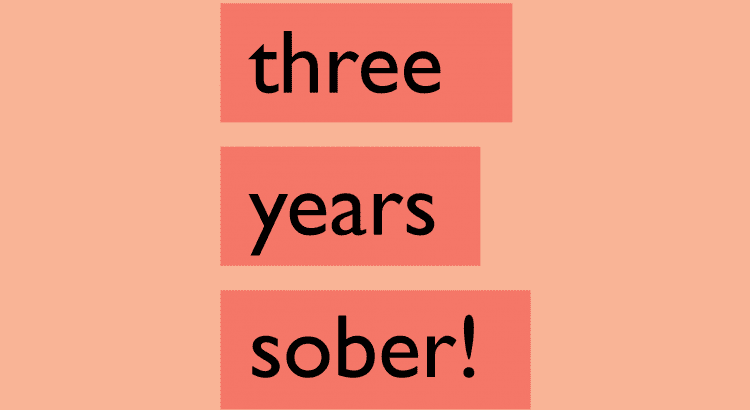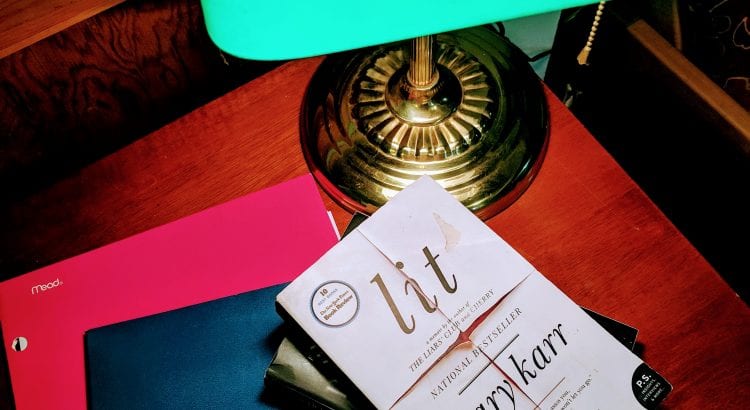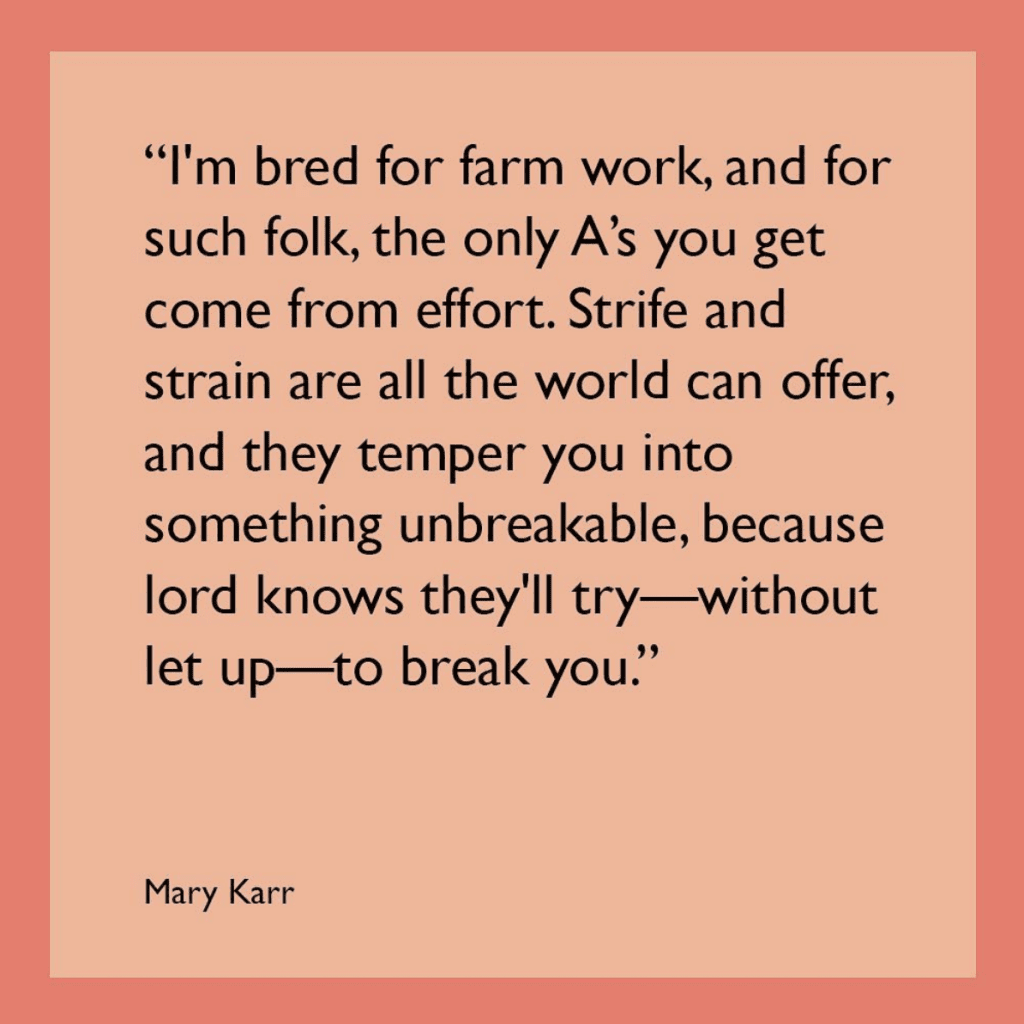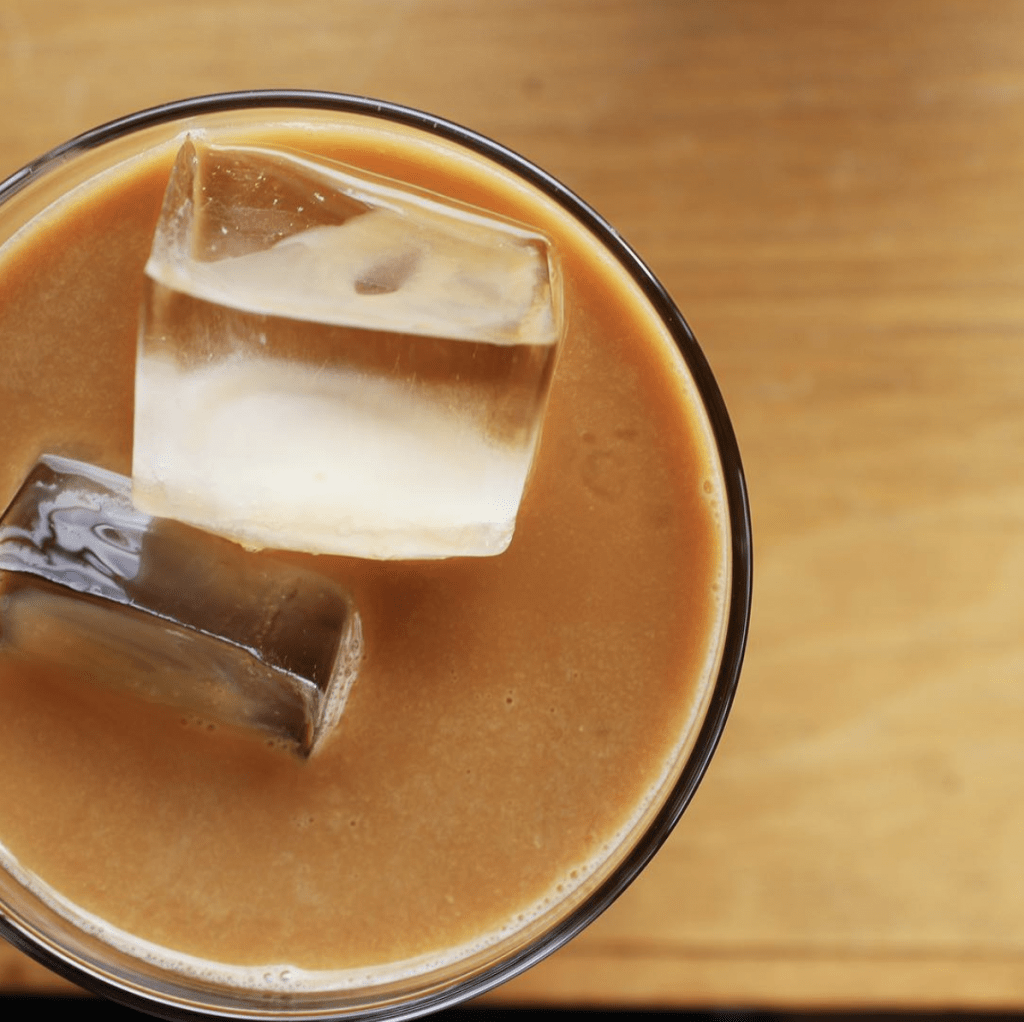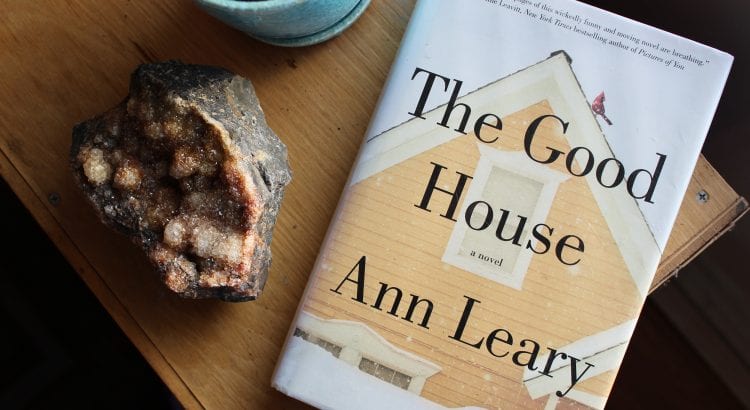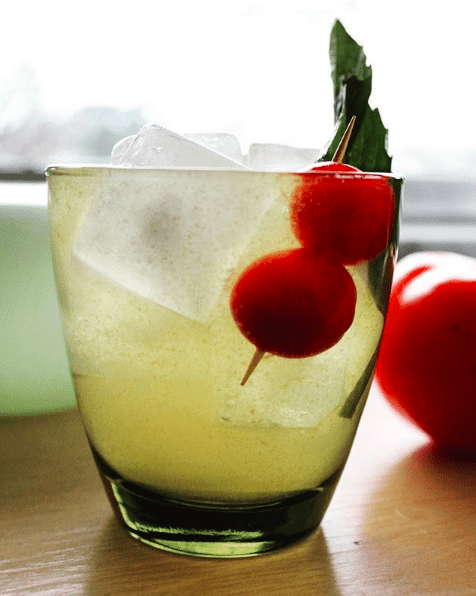Three years! Holy no-more-shitfaced!
I think of the exact date of my sobriety as a feral-animal-turned-beloved-pet’s birthday. I don’t know it for sure. I had tried to quit so many times before April 15, 2016, and I was tired of “remembering dates” only to be alarmed and disappointed in myself when I found myself hungover yet again. In fact, I figured out about a year ago that my real soberversary date is perhaps a few days before today… BUT I’ve got it in my brain as April 15, so April 15 it shall be.
That means, I haven’t been drunk since a little over three years ago. < !!!! pew pew pew all the emojis !!!!>
I have had one glass of alcohol since then. A glass of champagne at my bachelorette party. As soon as I sipped it, I felt gold in my veins. That’s what it felt like—gold. Relief. Escape. Precious.
More-more-more came calling with just one drink.
By the time of my bachelorette party, I had at least a year and a half of sobriety under my belt, but it didn’t matter. That voice I hadn’t heard in so long shot its shitty little self into my ear and said, “OMG ORDER EVERYTHING RIGHT NOW. A WHOLE BOTTLE OF CHAMPAGNE, AND AT LEAST TWO BLOODY MARYS. AND SHOTS FOR EVERYONE! OMG WE’RE fUCk*$g DOING THIS!!!”
But, no, we were not doing this. It took a lot of effort—too much effort, I thought, considering I hadn’t drank in so long—to push that voice back in the cage where it belonged. But I did. I drank sparkling grape juice the rest of the weekend. And my amazing mother-in-law had some waiting for Justin and I in the hotel after our wedding.
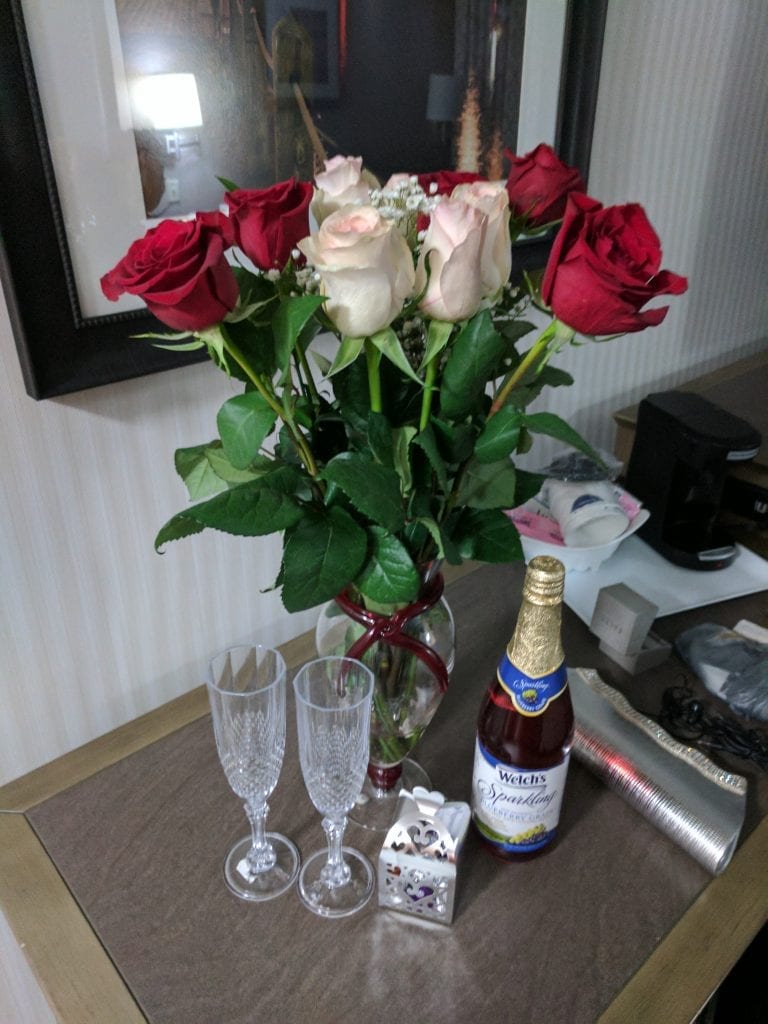
I’m so happy for that glass of champagne, which the well-meaning waiter had brought me as a surprise when he heard what our group was celebrating. Getting and staying sober was really hard for me, and it was especially difficult my first year, but I had reaped enough rewards of sobriety to know that voice was no good. Being sober for a while had made me aware of that voice so I could shut it up early. Being sober for a while had helped me be in my body in a new way, a way that enabled me to recognize that fool’s-gold feeling for what it was as soon as it hit me.
I’m so grateful today. I’m grateful for the people who loved me unconditionally through some hard times. I’m grateful to the people who find the courage every day to face their addiction problems, who have the courage to try to be their better selves and who fight for it day after day after day. I’m so grateful to the people who recover out loud, too, like the writers and recovering alcoholics who helped me understand what I was going through and helped me feel less alone.
Most of all, today I’m so… like… earth-shatteringly grateful to that sad, disappointed, disgusted, rock-bottomed-out self who decided around three years ago that enough was enough—and that I was enough without booze. Thank you thank you thank you.
That glass of champagne and how instantaneously my old destructive-drinking self presented itself was the final sign I needed to accept that I had to be done drinking forever. There was no controlling it. No nice little bachelorette brunch with one martini for me. I couldn’t drink ever again if I wanted to be happy.
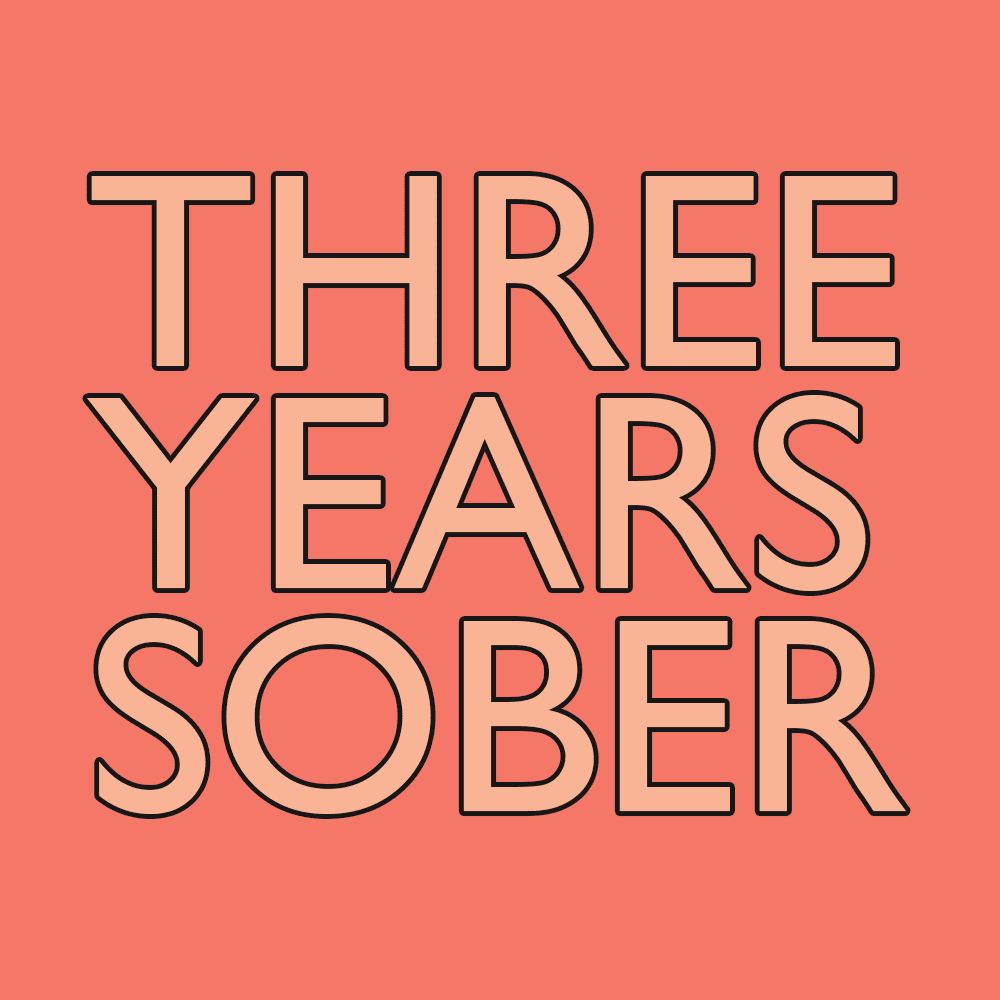
A look back at Year Three
And happy I am! Year Three was a good one.
Some highlights:
- I had my first solo art show, featuring work that I count as integral to my early sobriety. Listen to my interview about why on The Unruffled Podcast.
- I launched a sober book club podcast with my dear friend Shelley. Obviously, there’s so much power in sharing our individual journeys, but it’s important we never feel pressure to share until we are ready. My first year of sobriety was spent being very, very quiet about it. I didn’t want to talk about my new sobriety for fear of scaring it away. I also wasn’t sure about ~anything~, least of all if sobriety would stick… Take your time. When you’re ready, the sober community has open arms, ears, and hearts.
- I started going to therapy regularly. Regularly being the key word here. I was usually a three-visits-and-done kind of client, thinking “OK, problem solved!” Or (more often) “Why am I paying someone to just listen to me talk?” All things considered, I probably need regular therapy less than ever today. Ha! But that’s the point, I think. I’m healthy enough now to ask for help. Even minimal help. Going to therapy now is less about solving an urgent problem and more about reminding myself that it’s important to show up for my emotional self in some kind of physical capacity on a consistent basis. It helps me trust myself.
Year Three definitely brought some brought new challenges, too. This year, the shock of staying sober wore off. A layer of the onion had peeled away. The raw one. And now I was left looking at a whole new me. I had changed and had to get used to it.
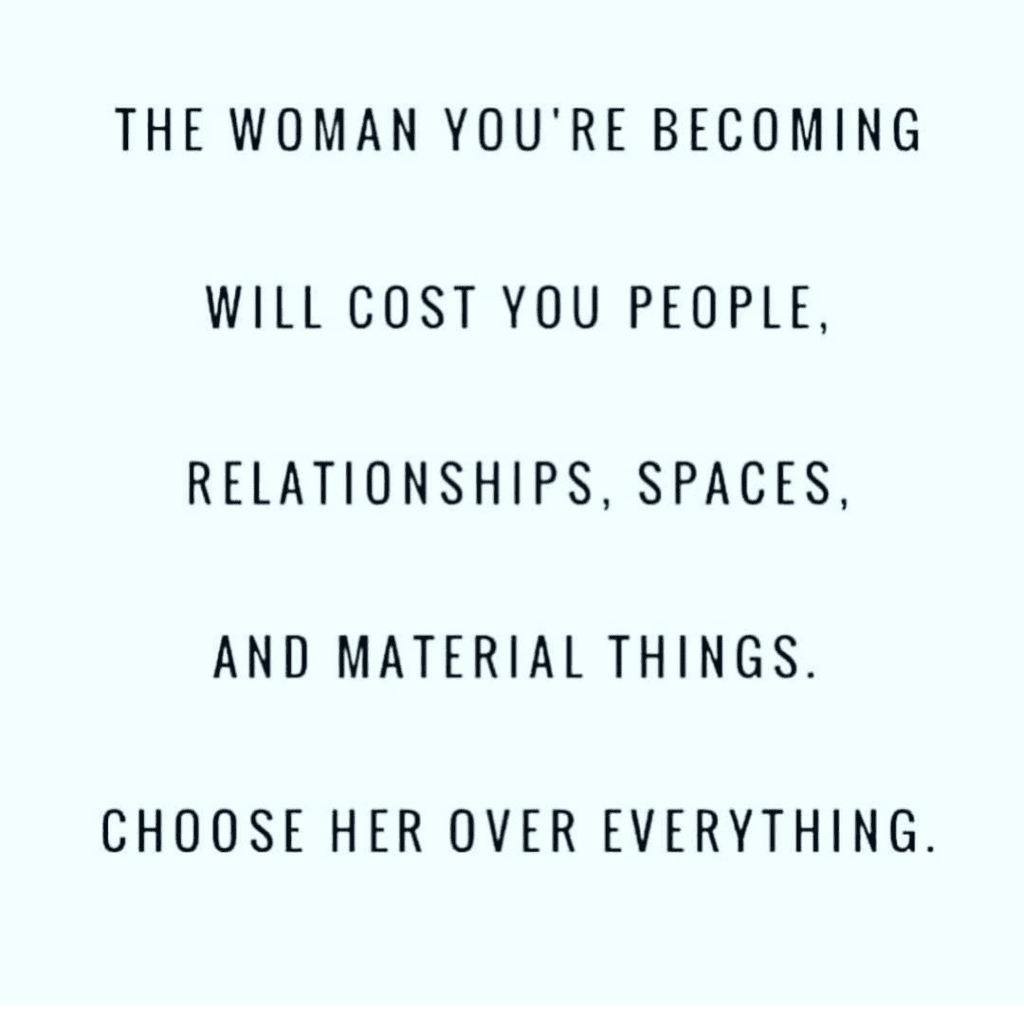
When you get sober (from whatever you’re addicted to… doesn’t have to be booze) and want to enjoy being sober, you’re required to give up some additional things. You’re not ready for it. You think, “Well, I quit the number-one-problem thing. Problem solved!”
Alas, recovery is a lifelong journey. There are 12 stupid freaking steps for a reason. You don’t just admit you have a problem and, bam, all is well. It takes work. And constant self-vigilance and discipline — two seemingly scary words that are, I’ve found, the root of all peace.
This year I was able to recognize ways in which the behavioral patterns tied to my alcohol abuse were still showing up in my life. The patterns were just channeled through other outlets, less destructive outlets certainly, but unhealthy ones nonetheless.
They were hard to pinpoint initially. I’m being vague for a reason… it’s still sorta hard for me to explain. The best example I can give is work. Workaholism is real and I got it, y’all. I can sometimes use work and overcommitting myself for the same reasons I used alcohol. As a means of escape, to outrun perfectionism and fear and guilt and shame and imposter syndrome and and and…
Plans for Year Four
I don’t think my intense work ethic is bad. Not at all. It’s one of the best things about me. I am loyal AF to something I say I will do and earn everything I have. That means a lot to me and always will.
I just want to work on working better. Saying no to good opportunities and only taking great ones, for example. Making space for more personal goals and being clear on what those are. Really working on being a better partner and friend and a person who lives every day aligned to her values. Etc.
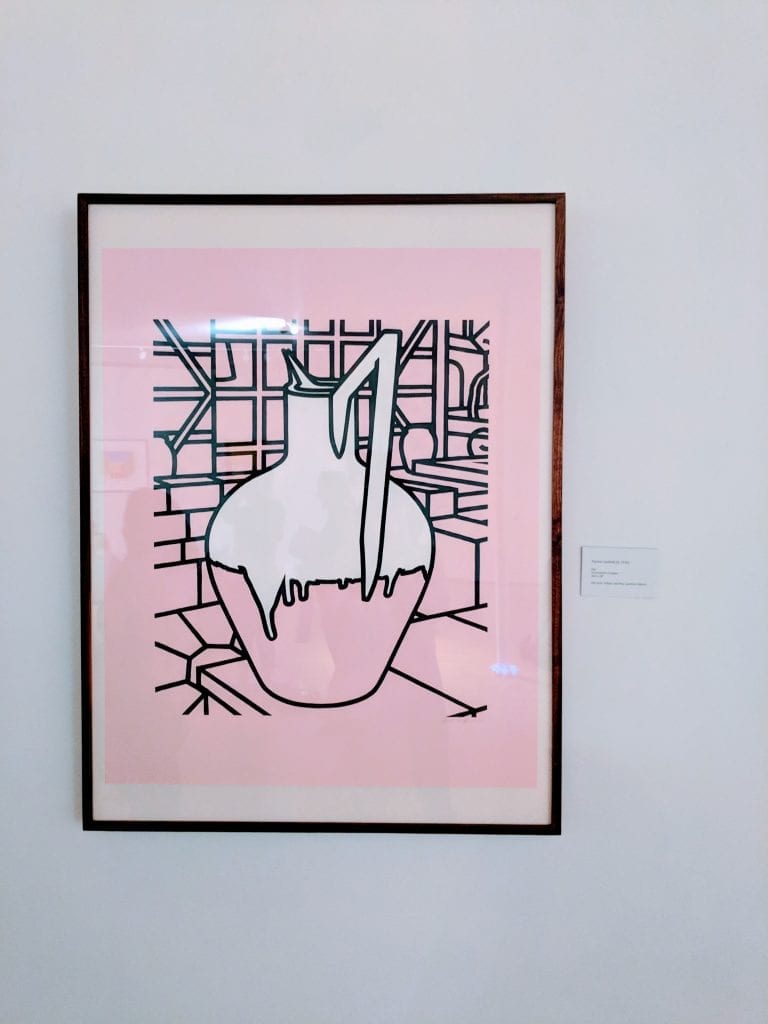
In my vision, my highest self (lookin’ sexay in a white toga because I guess that’s how my mind works?) presented me with… a jug. A freakin’ jug! I was like, ugh, my highest self is one cheap bitch. What is this supposed to mean? I thought maybe water. Like I was thirsty at the moment (highest selves being quite practical), but in hindsight, I think it represents a couple important things: 1) taking a time-out to re-energize and 2) connecting with others over a new drink (ie. I don’t need to hide anymore… I can hang out with people sober and just drink water).
After this meditation, I also kept seeing jugs in artworks everywhere! Particularly in still life paintings, where the message is obvious — be still for bit, Mantey. But also in paintings where the jug was meant to represent community (a jug being something you have on the table when you have people over). I like that one and I think it’s important. I think Year Four will mean coming outside of myself more, now that I’m ready, and connecting with other people in better, more honest ways than ever before.
I have three ideas for how to achieve this all in Year Four. Recovering workaholics still need a plan:
- Hustle with intention. I want to focus on the writing I’ve been planning for a while now but have been pushing to the back burner out of fear. Fear of it not being good enough, and also fear of not taking any paying job that’s offered me (even if I have five others lined up… oy). I want to focus on saying no to things, and I don’t just mean work that is unrelated to my creative writing. I mean saying no to, for example, taking a class that’s wrong for me or taking the time to read a book about craft just because I’m afraid to actually do the work.
- Take the emotion out of most decision making. Blah. How many decisions do we make or how many worries do we focus on simply because we are afraid or trying to distract ourselves from some deeper truth? I want to be strategic and responsive, instead of reactive and unreasonable about my time and energy and interests. I want to look at choices as only that: Choices with pros and cons (not right or wrong, black or white, life-changing or life-threatening). Choices that I consider and make a logical decision about based on truth, not feeling. Contingency relationships with an if/ then approach.
- Rest. Unapologetically. If I need time, I’m going to not only ask myself for it, but give it. I’m the one who puts myself in these overwhelming situations, for reasons that run the same deep paths that my excessive drinking did. I’ve learned a lot about boundaries the last three years, and I think this year will be about learning to put boundaries on my restlessness, which presents itself as ambition but is actually insecurity and a short-term escapism disguised as a “good idea.” Acting lovingly toward myself and my people is the better idea. Always.
